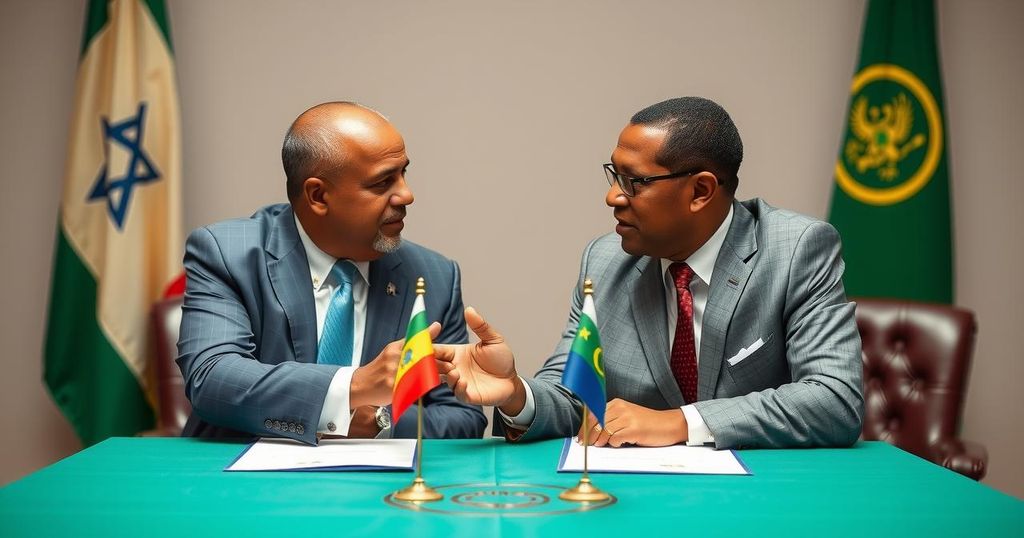The African Union has urged Somalia and Ethiopia to promptly implement an agreement to alleviate tensions regarding Ethiopia’s coastal access. This agreement, facilitated by Turkey, aims to enhance cooperation and ensure maritime access for Ethiopia while addressing concerns from Somalia about its sovereignty. Both nations are expected to engage in forthcoming technical talks to finalize details of the deal.
The African Union has called on Somalia and Ethiopia to expedite the implementation of a pivotal agreement aimed at alleviating tensions concerning Ethiopia’s access to the sea. This initiative follows a recent accord reached through Turkish mediation, which aims to resolve disagreements stemming from Ethiopia’s leasing arrangement with Somaliland. Somali President Hassan Sheikh Mohamud and Ethiopian Prime Minister Abiy Ahmed stated their commitment to regional cooperation, highlighting a shared interest in maintaining peace and stability. Under this new framework, both nations have pledged to work towards ensuring Ethiopia’s sustainable maritime access, which is considered essential for its economic growth.
The African Union’s Commission Chairman, Moussa Faki Mahamat, emphasized the importance of the leaders’ agreement, urging immediate action to implement the necessary measures. Likewise, the Intergovernmental Authority on Development (IGAD) expressed support for the agreement, recognizing it as a significant milestone towards amicable resolution of bilateral issues between the two nations. The accord stipulates the commencement of technical talks to ensure Ethiopia’s maritime access and outlines a cooperative framework aiming for mutual prosperity between the neighbors. However, uncertainty remains regarding the impact of this agreement on the existing accord between Ethiopia and Somaliland.
Despite the emphasis on cooperation, tensions linger, especially as Somalia seeks to fortify its relationships with traditional rivals of Ethiopia. Somalia’s expulsion of Ethiopia’s ambassador and its exclusion of Ethiopian troops from the African Union peacekeeping force reveal underlying strains in diplomatic relations. Ethiopia has historically sought coastal access since losing it to Eritrea in 1993, and this recent agreement signifies potential progress in resolving a long-standing geopolitical issue.
Historically, the relationship between Somalia and Ethiopia has been fraught with tensions, particularly in light of Ethiopia’s landlocked status following Eritrea’s independence in 1993. The recent agreement comes in the wake of Ethiopia’s controversial dealings with Somaliland, a breakaway region of Somalia that declared independence in 1991, an act not recognized by Somalia’s central government. The signing of this new deal attempts to ease existing frictions by providing Ethiopia with a semblance of access to the sea, which is essential for its economic development. However, the geopolitical dynamics of the Horn of Africa remain complex, exacerbated by past conflicts and current alliances, particularly between Somalia and Ethiopia’s detractors, like Egypt.
In summary, the African Union has highlighted the urgent need for Somalia and Ethiopia to implement their recent agreement aimed at fostering cooperation and easing territorial tensions. As both countries recognize the significance of peace and stability in the region, the success of this agreement will hinge on their ability to navigate historical disputes while promoting mutual interests. The situation remains delicate, with implications for regional security and international relations in the Horn of Africa. Continued dialogue and technical discussions will be critical in advancing this partnership and ensuring the sustainable, cooperative access to the sea that Ethiopia seeks.
Original Source: www.seychellesnewsagency.com






